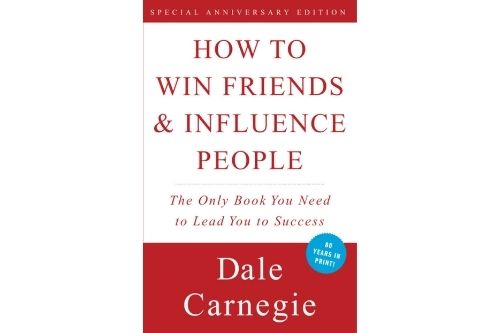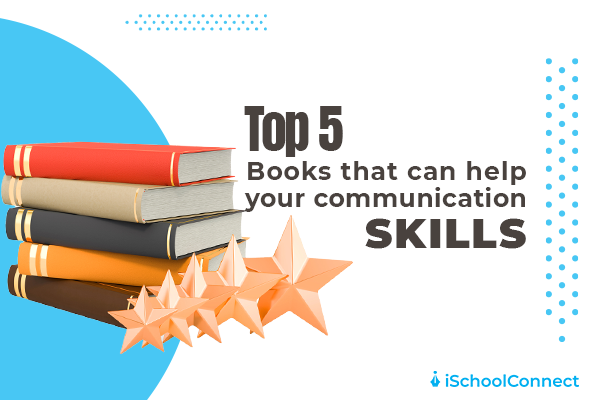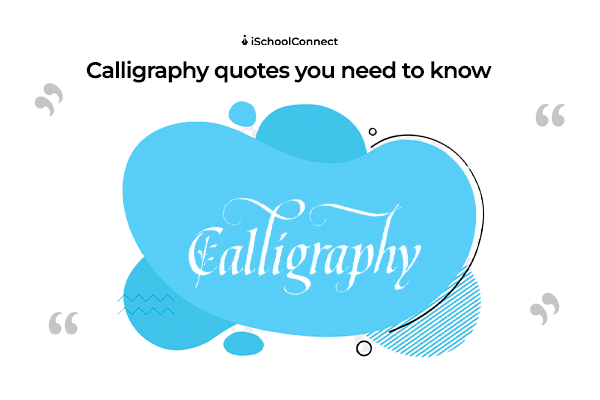Table of Contents
- How to Win Friends and Influence People by Dale Carnegie
- How to Talk to Anyone by Leil Lowndes
- Influencer: The New Science of Leading Change by Joseph Grenny, Kerry Patterson, David Maxfield, Ron McMillan, and Al Switzler
- Crucial Conversations by Joseph Grenny, Kerry Patterson, Ron McMillan, and Al Switzler
- Always Know What to Say by Peter W. Murphy
- Never Split the Difference by Chris Voss
- Skill with People by Les Gibli
- On Speaking Well by Peggy Noonan
- How to speak, How to listen by Mortimer J. Adler
- Last thoughts
- FAQs
Effective communication is necessary for school, college, business, job, and personal life; at the very least, It enables you to communicate your message in a more reasonable and intelligent manner. Some people are simply too proficient at communicating in just a few words. So, we thought to share an incredible assortment of the best books on communication skills with you today. These books on this list have received the highest reader ratings on Amazon. The feedback has also been fantastic. These novels have had a significant impact on people’s lives. These are some of the best books on communication skills.
How to Win Friends and Influence People by Dale Carnegie

This is most likely one of the finest books on how to communicate with others, especially while operating a business. The book contains several really valuable and straightforward concepts that can be used right away. There are no theories here; this is simply a complete package that is ready to use. This book will empower you to meet new people and influence them right away. It’s as easy as it sounds. It’s even easier to put into practice. Only a few sentences can convey everything you need to know about how to be an effective influencer.
How to Talk to Anyone by Leil Lowndes
One of Amazon’s best sellers under the communication skills books category. This book is great and has 92 specific relationship success techniques. You can learn all you need to know about effective communication in one single book. It opens with a thought-provoking quotation:
There are two kinds of people in this life: Those who walk into a room and say, “Well, here I am” and those who walk in and say, “Ahh, there you are.”
This quote alone titillates the readers’ interest. This book will undoubtedly help you improve your communication skills.
Influencer: The New Science of Leading Change by Joseph Grenny, Kerry Patterson, David Maxfield, Ron McMillan, and Al Switzler
The significance of being able to effect change is emphasized in this book. This book weaves a common link amongst the world’s most powerful people. The focus of the book is on a leader’s ability to influence and bring about significant change. This book is about changing human behaviors, not persuading.
According to the book, “
“As a result of failed influence efforts and unfulfilled dreams, most of us grow impatient.”
The book also quotes a Warren Bennis saying –
“I wanted to influence. In the end, I wasn’t very good at being a university president. I looked out of the window and thought that a man cutting grass had more control over what he was doing.”
The focus of this book is on influencing others via extraordinary talents such as good communication, as well as a variety of others, to foster change.
Crucial Conversations by Joseph Grenny, Kerry Patterson, Ron McMillan, and Al Switzler
One of the greatest books on developing interpersonal skills and personal growth. This book teaches you how to handle a one-on-one conversation. This book discusses why individuals behave in certain ways when the stakes are high. It includes quotes from a variety of authors; for example, one passage from George Bernard Shaw says –
“The single biggest problem in communication is the illusion that it has taken place.”
This book focuses on implementing effective communication skills when it comes to crucial conversations. It also teaches how to negotiate accordingly.
Always Know What to Say by Peter W. Murphy

This book will help you break through the thick ice that prevents you from connecting with others. It’s also about starting conversations, making brief chats, and even having intriguing ones. At one point It says:
“You’ll gain a lot from “Always Know What To Say” if you treat it as a set of principles and strategies you get to play within the real world.”
Never Split the Difference by Chris Voss
Former international FBI hostage negotiator Chris Voss is the author of this book. Chris shares his tried-and-true tactics for high-stakes negotiations in his book, Never Split the Difference. The book instructs readers on how to execute business agreements by teaching them how to bargain. Negotiating acceptable ideas and methods, according to the author, is pointless, and tactical empathy, which he characterized as “emotional intelligence on steroids,” is critical for success, especially in high-stake scenarios.
Skill with People by Les Gibli
‘Skill with people’ holds all the information you’ll need to improve your communication skills. If you need to communicate with your boss or just wish to manage your house with your family, this is the book for you. One such powerful quote from this book summarizes it all –
“The art of dealing with people gives you the tools to take your people skills to a level that you never thought possible.”
On Speaking Well by Peggy Noonan
This book provides amazing insight into speaking. It is filled to the brim with useful tips on how to write and talk, particularly when it comes to giving presentations. Speeches provide an excellent opportunity to make an impression on others. This book will assist you in doing so by providing you with the necessary knowledge and concepts.
One quote from this book by Peggy Noonan says –
“A vivid imagination is a sign of intelligence and intelligent people can give speeches”.
How to speak, How to listen by Mortimer J. Adler
In the book “How to Speak,” Adler covers the fundamental concepts of communicating via speech in How to Listen, which includes sections on specialized presentations such as sales talks, lectures, and question-and-answer sessions, as well as tips on successful listening and learning through debate.
The book says:
“How extraordinary is the fact that no effort is made anywhere in the whole educational process to help individuals learn to listen well- at least well enough to close the circuit and make the speech effective as a means of communication.
Read more: Best Ways to Communicate with Students During the Admissions Process
Last thoughts
Everything begins with a conversation and effective communication skills may lead you a long way toward success. The significance of excellent communication cannot be overstated. If you want to influence someone, create new friends, or just lead a group of people, you need to communicate your ideas.
The effectiveness of a reading habit is also inextricably related to professional achievement. It opens the mind to fresh experiences and information sources. Reading communication skills books will help you become a better reader, writer, and speaker. By changing the way you read, you may be able to get an advantage over your competition and achieve your objectives. The reading process will be enhanced and you will be able to attain your objective if you select the suitable reading skill.
Liked this blog? Read General knowledge books | Amazing books you must read
Feel free to reach out to us regarding any queries about studying abroad!
FAQs
Q1. Is it true that reading improves communication?
Answer – Reading may help you expand your vocabulary, improve your sentence structure, and improve your general communication ability. As you read, you will get a better understanding of the English language and will be able to use it more confidently in both spoken and written communication.
Q2. What exactly is communication?
Answer – Giving, receiving and exchanging information — in other words, talking, writing, listening, and reading — is the act of communication. Good communicators pay attention to what others are saying, speak or write clearly, and respect differing viewpoints.
Q3. What is the function of communication?
Answer – The five primary functions of communication are to inform, express sentiments, fantasize, influence, and satisfy societal expectations. Each of these goals is communicated in some way.






